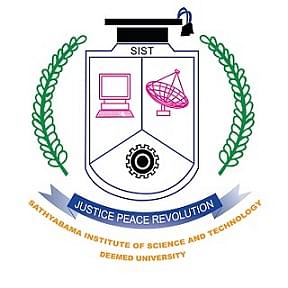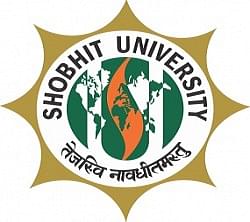INTRODUCTION:-
Certainly! Here's an introduction to the field of biochemistry for M.Sc.
students:
Biochemistry is a branch of science that explores the chemical processes
and substances that occur within living organisms. It delves into the molecular
mechanisms underlying biological functions, ranging from the structure and
function of biomolecules to the intricate metabolic pathways that sustain life.
In a M.Sc. program in biochemistry, students typically study a broad
range of topics that encompass the fundamental principles of biology and
chemistry, as well as specialized areas such as molecular biology, genetics,
enzymology, metabolism, and biotechnology.
The curriculum often includes theoretical knowledge and practical laboratory
skills, allowing students to gain a deep understanding of biochemical concepts
and techniques. Through coursework, seminars, and research projects, students
learn to analyse and interpret biological phenomena at the molecular level, and
to apply their knowledge to solve complex problems in areas such as medicine,
agriculture, and environmental science.
Key areas of study in a M.Sc. program in biochemistry may include:
1. Biomolecules: The study of the structure, function, and interactions of
essential molecules in living organisms, including proteins, nucleic acids,
carbohydrates, and lipids.
2. Metabolism: Investigation of the biochemical pathways involved in energy
production, nutrient utilization, and the synthesis and breakdown of
biomolecules.
3. Molecular Biology: Examination of the molecular mechanisms governing
processes such as DNA replication, transcription, translation, and gene
regulation.
4. Enzymology: Understanding the properties and catalytic mechanisms of
enzymes, which are essential for driving biochemical reactions in cells?
5. Biotechnology: Application of biochemical principles and techniques to
develop new technologies for medical, agricultural, and industrial purposes,
such as recombinant DNA technology and protein engineering.
6. Bioinformatics: Utilization of computational tools and databases to
analyze and interpret biological data, such as DNA sequences, protein
structures, and metabolic pathways.
Overall, a M.Sc. program in biochemistry provides students with a
comprehensive understanding of the molecular basis of life, equipping them with
the knowledge and skills to pursue careers in research, academia, healthcare,
biotechnology, and various other fields where a deep understanding of
biochemistry is essential.
Admission on biochemistry in M.SC.
Admission requirements for a M.Sc. program in
Biochemistry may vary depending on the Affordable
University of the Rajasthan and country where you're applying. However,
here's a general overview of what you might expect:
1. Bachelor's Degree: Typically,
you'll need a bachelor's degree in a relevant field such as biochemistry,
chemistry, biology, molecular biology, or a related discipline. Some programs
may also accept students with degrees in fields like biotechnology or
biomedical sciences.
2. Academic Transcripts: You'll likely
need to submit transcripts from your undergraduate studies, demonstrating a
strong academic record, particularly in courses relevant to biochemistry and
related sciences.
3. Letters of Recommendation: Most programs
will require letters of recommendation from professors or professionals who can
speak to your academic abilities, research potential, and character.
4. Statement of Purpose or Personal Statement: You may need to write a statement explaining your academic and career
goals, why you're interested in biochemistry, and why you're applying to that
particular program.
5. Standardized Tests: Depending on
the institution, you may need to submit scores from standardized tests such as
the GRE (Graduate Record Examination) or other equivalent tests.
6. English Language Proficiency: If English is not your first language, you may need to demonstrate
proficiency through tests like the TOEFL (Test of English as a Foreign
Language) or IELTS (International English Language Testing System).
7. Research Experience: While not
always mandatory, having research experience in a relevant field can strengthen
your application, especially if you're applying for a research-focused program
where you'll be expected to conduct independent research.
8. Interview: Some programs
may require an interview as part of the admissions process, either in person or
via video conference. This allows the admissions committee to learn more about
you and your interests.
It's essential to carefully review the specific admission requirements
and application deadlines for each program you're interested in, as they can
vary significantly from one institution to another. Additionally, reaching out
to the admissions office or department directly can provide you with valuable
information and guidance throughout the application process.
Eligibility in biochemistry in M.SC.
The eligibility criteria for a M.Sc. in
Biochemistry program may vary depending on the Best University of Rajasthan and country where you're applying.
However, here are some common eligibility requirements:
1. Bachelor's Degree: Typically,
you'll need a bachelor's degree in a relevant field such as biochemistry,
chemistry, biology, molecular biology, biotechnology, or a related discipline
from a recognized university or college.
2. Minimum GPA: Many programs
have a minimum GPA requirement for undergraduate coursework, often around 3.0
on a 4.0 scale or equivalent.
3. Prerequisite Courses: Some programs
may require specific prerequisite courses in subjects such as biochemistry,
organic chemistry, molecular biology, genetics, and cell biology. These
prerequisites ensure that students have the necessary background knowledge for
the M.Sc. curriculum.
4. Standardized Tests: Depending on
the institution and country, you may need to submit scores from standardized
tests such as the GRE (Graduate Record Examination) or equivalent tests.
However, not all programs require standardized test scores for admission.
5. English Language Proficiency: If English is not your first language, you may need to demonstrate
proficiency through tests such as the TOEFL (Test of English as a Foreign
Language) or IELTS (International English Language Testing System). Some
institutions may waive this requirement if you have completed your previous
degree in English or if you're from a predominantly English-speaking country.
6. Letters of Recommendation: Many programs
require letters of recommendation from professors or professionals who can
attest to your academic abilities, research experience (if any), and
suitability for graduate study in biochemistry.
7. Statement of Purpose or Personal Statement: You may need to submit a statement of purpose or personal statement
explaining your academic background, research interests, career goals, and why
you're interested in pursuing an M.Sc. in Biochemistry at that particular
institution.
8. Interview: In some
cases, applicants may be required to participate in an interview as part of the
admissions process. This allows the admissions committee to assess your
suitability for the program and learn more about your interests and
aspirations.
It's important to carefully review the specific eligibility criteria and
application requirements for each program you're interested in, as they can
vary. Additionally, reaching out to the admissions office or department can
provide you with more information and guidance on the application process.
Biochemistry in M.SC. Syllabus
The syllabus for an M.Sc. program in Biochemistry
can vary depending on the Top University
of the Rajasthan and the focus of the program. However, here's a general
overview of topics that are commonly covered in such programs:
1. Biochemical Principles and Techniques:
·
Introduction
to biochemistry and its importance in modern biology.
·
Biochemical
techniques such as chromatography, electrophoresis, spectroscopy, and mass spectrometry.
·
Biochemical
analysis of biomolecules including proteins, nucleic acids, carbohydrates, and
lipids.
2. Cell Biology and Molecular Biology:
·
Structure and
function of cells.
·
Molecular
biology techniques such as PCR (Polymerase Chain Reaction) and DNA sequencing.
·
Gene
expression, regulation, and genetic engineering.
·
Molecular
mechanisms of DNA replication, transcription, and translation.
3. Enzymology and Metabolism:
·
Properties and
classification of enzymes.
·
Enzyme
kinetics and catalytic mechanisms.
·
Metabolic
pathways including glycolysis, citric acid cycle, oxidative phosphorylation,
and photosynthesis.
·
Regulation of
metabolism and metabolic integration.
4. Bioinformatics and Systems Biology:
·
Introduction
to bioinformatics tools and databases.
·
Sequence
analysis, protein structure prediction, and genome annotation.
·
Systems
biology approaches to understand complex biological systems.
5. Protein Structure and Function:
·
Protein
structure determination techniques such as X-ray crystallography and NMR
spectroscopy.
·
Protein
folding, stability, and dynamics.
·
Protein-ligand
interactions and enzyme mechanisms.
6. Membrane Biochemistry and Signaling:
·
Structure and
function of biological membranes.
·
Transport
mechanisms across membranes.
·
Cell signaling
pathways including receptor-mediated signaling and intracellular signaling
cascades.
7. Biochemical Endocrinology and Hormones:
·
Structure and
function of hormones.
·
Endocrine
glands and their regulation.
·
Hormonal
signaling pathways and their role in physiological processes.
8. Biotechnology and Biochemical Engineering:
·
Applications
of biochemistry in biotechnology and medicine.
·
Recombinant
DNA technology and genetic engineering.
·
Production of
biofuels, pharmaceuticals, and biologics.
9. Biochemical Pharmacology and Drug Discovery:
·
Principles of
pharmacology and drug action.
·
Drug
metabolism and pharmacokinetics.
·
Drug discovery
and development process.
10. Research Methods and Project Work:
·
Research
methodology and experimental design.
·
Conducting
independent research projects under the supervision of faculty members.
·
Data analysis,
interpretation, and presentation.
This syllabus provides a comprehensive understanding of biochemistry,
covering both theoretical concepts and practical applications. However, the
specific topics and depth of coverage may vary depending on the program's
focus, faculty expertise, and available resources.
Biochemistry in M.SC. Scholarship
Scholarships for M.Sc. programs in Biochemistry can
come from various sources including universities, government agencies,
private organizations, and foundations. Here are some potential avenues for
securing scholarships:
1. University Scholarships: Many universities of the Rajasthan offer
scholarships specifically for M.Sc. students in various fields, including
biochemistry. These scholarships may be based on academic merit, financial
need, or a combination of both. Check with the university's financial aid
office or the department offering the M.Sc. program for information on
available scholarships and application procedures.
2. Government Scholarships: Government
agencies in your country may offer scholarships for graduate students pursuing
studies in biochemistry or related fields. These scholarships may be funded by
the government directly or through specialized programs aimed at supporting
education and research in specific disciplines. Check with your country's
education or science ministry for information on available government
scholarships.
3. Research Grants and Fellowships: Many research institutions, both public and private, offer grants and
fellowships to support graduate students conducting research in biochemistry.
These grants may cover tuition fees, living expenses, and research-related
costs. Research organizations, pharmaceutical companies, and biotechnology
firms are common sources of funding for biochemistry research. Keep an eye on
their websites or contact them directly to inquire about available
opportunities.
4. International Scholarships: If you're
considering studying biochemistry abroad, there are numerous international
scholarships available to support graduate students from other countries. These
scholarships may be offered by governments, international organizations, or
universities themselves. Examples include the Fulbright Program, Chevening
Scholarships, and Erasmus Mundus Scholarships. Be sure to research scholarship
opportunities in your target country well in advance of applying for admission.
5. Professional Associations and Foundations: Professional associations and foundations related to biochemistry or
the life sciences may offer scholarships to support graduate education and
research in the field. Examples include the American Society for Biochemistry
and Molecular Biology (ASBMB), the International Union of Biochemistry and
Molecular Biology (IUBMB), and the National Science Foundation (NSF) in the
United States. Explore their websites or contact them directly for information
on available scholarships and eligibility criteria.
When applying for scholarships, be sure to carefully review the
eligibility criteria, application deadlines, and required documents. Prepare a
strong application that highlights your academic achievements, research
experience, and career goals. Additionally, consider reaching out to faculty
members or researchers in biochemistry who may be able to provide guidance and
support in your scholarship search.












